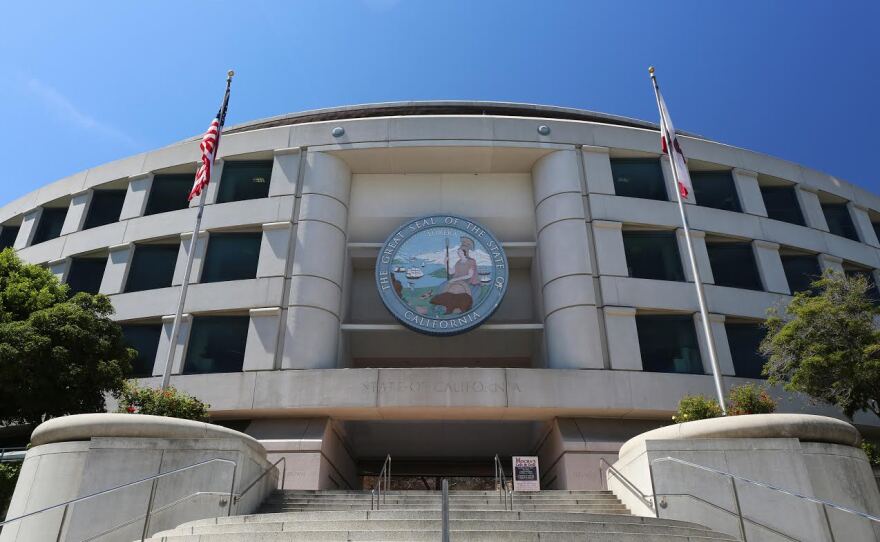Gov. Jerry Brown announced Monday that he's reached a deal with lawmakers on proposed legislation to improve transparency and make other reforms at the embattled California Public Utilities Commission.
The proposal comes nearly eight months after the Democratic governor vetoed six bills looking to crack down on the CPUC, which has been accused of maintaining cozy relationships with the companies it regulates and responding slowly to safety issues.
RELATED: Inside The Deal That Shaped San Diego County’s Power Picture
Brown and three Democratic lawmakers who are pushing CPUC legislation agreed to scale back the agency's regulatory authority, including removing oversight of transportation companies, and to require more public disclosure and participation in its proceedings. The lawmakers are Assemblyman Mike Gatto of Glendale and Sens. Jerry Hill of San Mateo and Mark Leno of San Francisco.
"These reforms will change how this commission does business," Brown said in a statement.
The proposal requires approval from both houses of the state Legislature.
The CPUC regulates electric, gas and telecommunications companies, including their rates and safety practices. It also oversees railroad safety as well as transportation providers including buses, limousines, airport shuttles, movers and ride-hailing companies Uber and Lyft.
Consumer advocates allege that CPUC commissioners are too close to executives from the utilities they regulate. They also fault the agency's response to a massive gas leak at Porter Ranch in Southern California this year and a deadly pipeline explosion in San Bruno in 2010. Consumers were also angered by widespread outages when Frontier Communications bought Verizon's fiber optic internet business.
Under the proposed overhaul, the CPUC would shift responsibility for transportation companies to the Department of Motor Vehicles and the California Highway Patrol. Lawmakers hope removing transportation oversight will eliminate a distraction and allow the agency to focus on utility regulation.
The attorney general would gain authority to enforce limitations on private communications between utility executives and CPUC staff or commissioners. Emails made public in a lawsuit over the San Bruno explosion described then-CPUC President Michael Peevey holding private discussions with Pacific Gas & Electric officials on issues affecting the company.
People denied access to public records would gain the right to challenge the decision in court.
The overhaul would also require the CPUC to hold meetings throughout the state, not just at its San Francisco headquarters, and forge better relationships with other state regulators that oversee elements of the energy industry.
The CPUC will also hire an ethics ombudsman and a high-level official in charge of safety.
The proposal "represents a realignment of the values for the PUC," said Gatto, who proposed a ballot measure earlier this year to bypass Brown and ask voters to break apart the agency.
"It will enable them to be more specialized, more focused, basically to have the ability to make safety a priority, to make utility rates a priority," Gatto told reporters in a news conference.
Gatto said he'll drop the proposed ballot measure if the proposal wins legislative approval.
In vetoing six CPUC reform bills last year, Brown said lawmakers tried to do too much at once and didn't provide adequate funding. He said he'd work with lawmakers to enact changes.
The proposal is a modest improvement that provides new tools for public interest groups to keep an eye on the CPUC, but "utilities will not be shedding a tear over this reform plan," said Jamie Court, president of Consumer Watchdog, an advocacy group that has repeatedly raised concerns about the PUC.
"I think it does move the ball forward in terms of providing more sunshine so there isn't another scandal, but it does not fundamentally address the imbalance of power between ratepayers and the investor-owned utilities," Court said.






